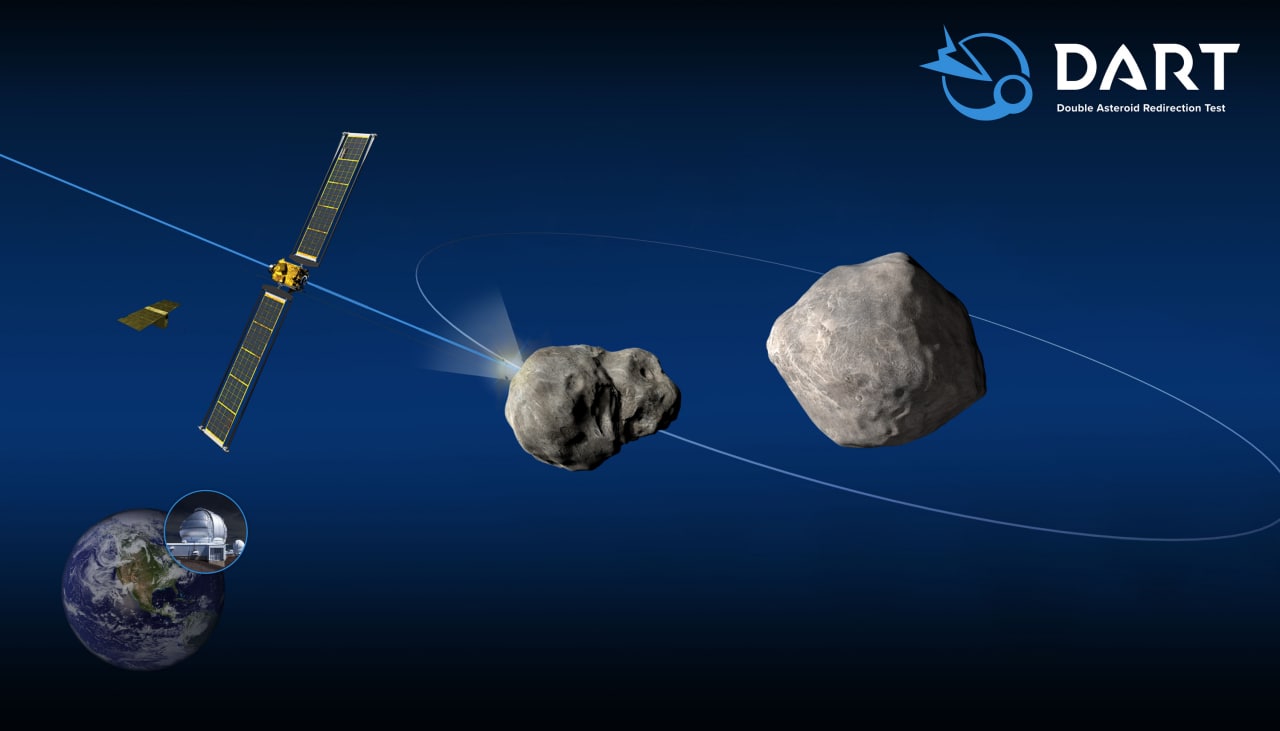Smash hit: On NASA’s Double Asteroid Redirection Test
NASA’s DART gives hope that science can ward off extraterrestrial threats
For the very first time, NASA scientists have succeeded in slightly altering the trajectory of an asteroid by using a spacecraft to slam into it. On September 27, 4.44 a.m. IST, a small spacecraft DART (Double Asteroid Redirection Test) was aimed at a 160-metre-wide asteroid Dimorphos, which was orbiting a larger asteroid Didymos, both of which were circling the sun, 11.2 million kilometres from the earth. Since neither body would have come closer than about 6.4 million km of the earth in their lifetime, they did not pose any threat. However, DART was a test mission to see if this technique, known as kinetic impactor, would give the necessary ‘nudge’ to an asteroid and alter its course by a desired amount. After studying the two bodies for nearly 10 days, NASA announced that the course of the smaller asteroid has indeed been altered a little: initially, the orbit of Dimorphos around Didymos took 11 hours and 55 minutes. After the impact, a 32-minute alteration in its orbital period has taken place — it is now 11 hours and 23 minutes only. The reason for this test is to learn how to use the kinetic impactor technique to ‘nudge’ earth-bound asteroids out of the way, years before impact. This is not a last-minute effort. A word of caution: all asteroids are not similar, so more tests have to be done to perfect this technique.
The U.S. is not alone in attempting this. China has a plan to deflect a 40 m wide, earth-crossing asteroid named 2020PN1 by 2026. There is a need to develop this technique because an impact with even a small asteroid can have serious consequences. The Chicxulub crater is a reminder of the impact of a 10 km wide large asteroid that fell on the earth 66 million years ago and wiped out nearly 75% of plant and animal life. An impact with an asteroid even about 100 m wide can destroy a city the size of Chennai. The other question is whether this technique can be used to deflect asteroids bearing rich bounties of minerals and moving them to closer locations from where these can be harvested. No country has made this an explicit aim till now. This first move by NASA to alter the course of a celestial body is a perfect theme for fiction and film; most recently, the film “Don’t Look Up” dealt with this theme directly. However, there are many more threats to life on earth, climate change being the most imminent and definite. It is to be hoped that this demonstration of the power of engineering and science can be extrapolated to ‘kick-start’ a move to avoid the drastic impact of such disasters too.
